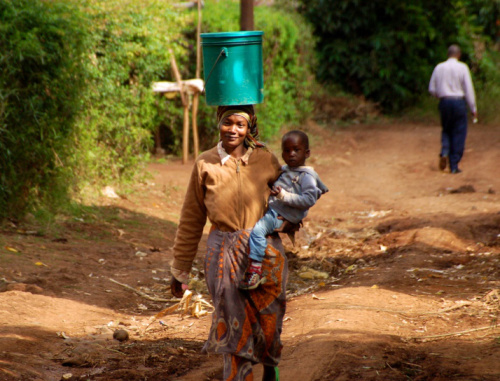RIO DE JANEIRO, Brazil (17 June 2012)__ More climate change adaptation research is needed to fill knowledge gaps on the role of forests in various systems beyond the local level, for example water and hydrology cycles, to ensure that countries can better adapt to the impacts of climate change.
A lot of empirical evidence already exists on how local communities use forest and trees to adapt to climate change, for example planting or keeping trees on their fields and having multiple use strategies about forest products, said Robert Nasi, Director of Forest, Tree and Agroforestry at the Center for International Forestry Research (CIFOR). “However, the more you go to the regional and global level, the more you face knowledge gaps and controversies. This is where we need to have very targeted research the roles that forests play in the regulating systems in the world,” he said at a side event at the Rio+20 summit.
Forests have received increased attention as the world recognises their key role in storing carbon. It is also well known that forests prevent desertification, recharge groundwater, control soil erosion, purify water, as well as provide food, medicine, and fuel for local people – yet the concept of ecosystem-based adaptation to help countries adapt to climate change is a relatively new approach.
Such research will help answer questions about who benefits– and who should pay – for the environmental services that forests provide, including users in different countries and regions.
Take water, for example. Tropical forests can increase evaporation and cloud cover and influence precipitation. Current estimates show that about 40% of rainfall comes from evaporation over land, which may include that owned by other countries. Forest clearance in Kenya or Tanzania may affect water availability in the Sahel; Argentinian farmers may in fact have to care about deforestation in the Amazon, as that is where some of their rain water may originate, said Nasi.
“There’s a different geopolitical message,” said Nasi, who co-authored the presentation with Bruno Locatelli, a CIRAD scientist seconded to CIFOR, and Emilia Pramova from CIFOR.
In a recent study published in Climate Policy, Pramova and Locatelli examined National Adaptation Programmes of Action (NAPAs) in the world’s 44 least developed countries. They found that while over half of these national plans acknowledge the importance of ecosystem services, few do so with the view that ecosystem services be explicitly used as a means to adapt to climate change.
One area where research can contribute is on ecosystem valuations to enable proper comparisons between ecosystem-based adaptation measures. It could compare solutions such as maintaining mangroves to deal with rising sea levels, with an engineering approach, such as building a dam, said Jacqueline Alder, Head of the Freshwater and Marine Ecosystem Branch at the United Nations Environment Programme. “The key questions that decision makers are asking when they’re looking at adaptation [approaches] are how much do they cost,” she said.
Scientists could also revisit previous forest data through a “climate change adaptation lens” to fill some of the knowledge gaps on research on how ecological, hydrological and other systems work at the regional and global level, said Nasi. Recommendations from the same set of data may differ when they’re seen through the adaptation lens than from different viewpoints, he said.
We want you to share Forests News content, which is licensed under Creative Commons Attribution-NonCommercial-ShareAlike 4.0 International (CC BY-NC-SA 4.0). This means you are free to redistribute our material for non-commercial purposes. All we ask is that you give Forests News appropriate credit and link to the original Forests News content, indicate if changes were made, and distribute your contributions under the same Creative Commons license. You must notify Forests News if you repost, reprint or reuse our materials by contacting forestsnews@cifor-icraf.org.
